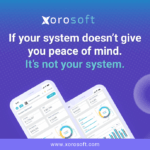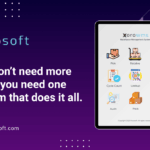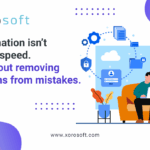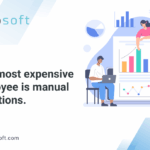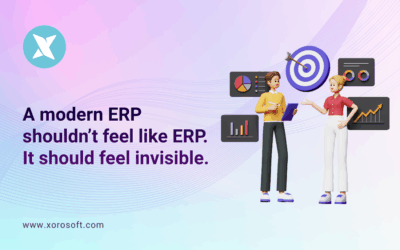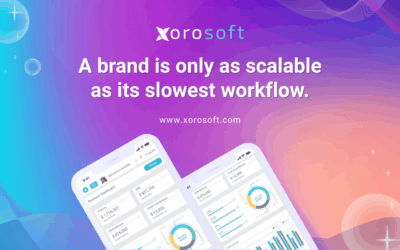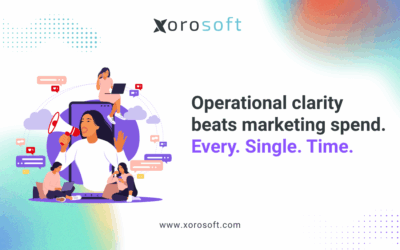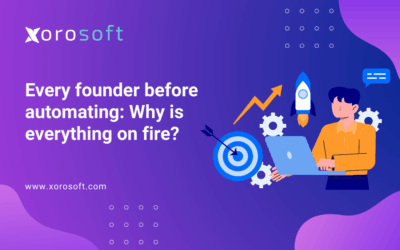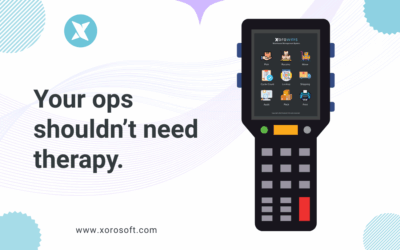
Introduction to ERP Systems
ERP systems are comprehensive software solutions that integrate and automate various business processes, including accounting, inventory management, supply chain, human resources, and more. These powerful platforms provide a centralized hub for managing and accessing critical business data, enabling SMBs to make informed decisions and stay competitive.
Benefits of Implementing an ERP System for SMBs
Implementing an ERP system can bring a host of benefits to SMBs. By centralizing and automating key business functions, ERP systems can help you:
- Improve Efficiency: ERP systems streamline workflows, reduce manual processes, and eliminate data silos, allowing your team to work more efficiently and productively.
- Enhance Visibility and Reporting: ERP systems provide real-time insights into your business operations, enabling you to make data-driven decisions and track key performance indicators.
- Boost Productivity: By automating repetitive tasks and providing a unified platform for collaboration, ERP systems can help your team focus on strategic initiatives and drive growth.
- Optimize Inventory Management: ERP systems offer advanced inventory tracking and forecasting capabilities, helping you maintain the right stock levels and reduce waste.
- Strengthen Financial Management: ERP systems integrate financial data across your organization, improving financial reporting, budgeting, and cash flow management.
Key Features and Functionality of ERP Systems
Modern ERP systems offer a wide range of features and functionalities to meet the diverse needs of SMBs. Some of the key capabilities include:
- Accounting and Finance: Comprehensive financial management tools, including general ledger, accounts payable and receivable, and financial reporting.
- Inventory Management: Real-time inventory tracking, automated replenishment, and demand forecasting.
- Supply Chain Management: Streamlined procurement, order processing, and logistics management.
- Human Resources: Integrated HR modules for employee management, payroll, and benefits administration.
- Customer Relationship Management (CRM): Centralized customer data, sales pipeline management, and marketing automation.
- Business Intelligence and Analytics: Advanced data analysis and reporting capabilities to support strategic decision-making.
Xorosoft ERP: A Comprehensive Solution for SMBs
At Xorosoft, we have developed a robust ERP system tailored specifically for the needs of SMBs. Our comprehensive solution, Xorosoft ERP, combines cutting-edge technology with a user-friendly interface to help businesses like yours streamline operations, improve productivity, and drive growth.
Streamlining Inventory Management with ERP Systems
One of the key benefits of implementing an ERP system like Xorosoft ERP is the ability to streamline your inventory management processes. By integrating real-time inventory data, automated replenishment, and demand forecasting, you can:
- Maintain Optimal Stock Levels: Avoid overstocking or stockouts by accurately tracking inventory levels and automating replenishment based on demand.
- Improve Warehouse Efficiency: Optimize warehouse operations through features like barcode scanning, lot tracking, and automated picking and packing.
- Reduce Costs: Minimize waste, spoilage, and obsolete inventory, leading to significant cost savings.
- Enhance Customer Service: Ensure timely order fulfillment and reduce backorders, improving customer satisfaction and loyalty.
Enhancing Financial Management with ERP Systems
ERP systems like Xorosoft ERP also offer robust financial management capabilities that can transform the way you handle your organization’s finances. By integrating accounting, accounts payable and receivable, and budgeting, you can:
- Improve Cash Flow Management: Gain real-time visibility into your financial position, allowing you to make informed decisions about cash flow and working capital.
- Streamline Invoicing and Billing: Automate the invoicing process, reducing errors and accelerating payment collection.
- Enhance Financial Reporting: Generate comprehensive financial reports, including profit and loss statements, balance sheets, and cash flow statements, to support strategic decision-making.
- Ensure Compliance: Maintain accurate financial records and comply with relevant accounting standards and regulations.
The Importance of Integration in ERP Systems
The true power of an ERP system lies in its ability to integrate various business functions and data sources. By seamlessly connecting your accounting, inventory, sales, and other critical systems, Xorosoft ERP enables:
- Improved Data Accuracy: Eliminate manual data entry and reduce the risk of errors by automatically synchronizing information across your organization.
- Enhanced Collaboration: Foster cross-departmental collaboration and communication by providing a centralized platform for accessing and sharing relevant data.
- Informed Decision-Making: Leverage real-time, comprehensive data to make more informed, data-driven decisions that drive business growth.
Choosing the Right ERP System for Your SMB
Selecting the right ERP system for your SMB can be a daunting task, but it’s a critical decision that can have a significant impact on your business. When evaluating ERP solutions, consider factors such as:
- Functionality and Scalability: Ensure the ERP system can meet your current and future business needs, with the flexibility to adapt as your organization grows.
- Ease of Use: Choose a user-friendly platform that requires minimal training, allowing your team to quickly adopt and maximize the system’s capabilities.
- Integration Capabilities: Prioritize an ERP system that seamlessly integrates with your existing software, data sources, and business processes.
- Implementation and Support: Assess the vendor’s implementation methodology, ongoing support, and training resources to ensure a smooth and successful deployment.
- Cost and Return on Investment (ROI): Carefully evaluate the total cost of ownership, including licensing, maintenance, and potential cost savings, to ensure a positive ROI.
Implementing an ERP System: Best Practices and Considerations
Successful ERP implementation requires careful planning and execution. Here are some best practices and considerations to keep in mind:
- Establish Clear Goals and Objectives: Clearly define the business goals and objectives you aim to achieve with the ERP system, ensuring alignment across your organization.
- Engage Key Stakeholders: Involve cross-functional teams, including end-users, IT, and management, throughout the implementation process to ensure buy-in and address any concerns.
- Customize and Configure Carefully: Work closely with your ERP vendor to customize and configure the system to match your specific business requirements, without over-complicating the solution.
- Prioritize Data Migration: Develop a comprehensive data migration strategy to ensure the accurate and efficient transfer of historical data into the new ERP system.
- Provide Comprehensive Training: Invest in thorough user training to ensure your team can leverage the full capabilities of the ERP system and maximize its benefits.
- Monitor and Continuously Improve: Regularly review the system’s performance, gather user feedback, and make necessary adjustments to optimize the ERP system’s effectiveness over time.
Xorosoft ERP: A Case Study of Successful Implementation
At Xorosoft, we take pride in our track record of successful ERP implementations for SMBs across various industries. One such example is the case of ABC Manufacturing, a mid-sized production company that partnered with us to implement Xorosoft ERP.
Before the implementation, ABC Manufacturing struggled with siloed data, inefficient inventory management, and suboptimal financial reporting. By deploying Xorosoft ERP, the company was able to:
- Streamline Inventory Management: Achieve real-time visibility into inventory levels, automate replenishment, and reduce costly stockouts and overstock.
- Enhance Financial Reporting: Generate comprehensive financial reports, including detailed cash flow analysis, to support strategic decision-making.
- Improve Operational Efficiency: Eliminate manual processes, reduce data entry errors, and empower employees to work more productively.
- Facilitate Cross-Departmental Collaboration: Foster seamless communication and data sharing across the organization, breaking down information silos.
The successful implementation of Xorosoft ERP has enabled ABC Manufacturing to improve their bottom line, enhance customer satisfaction, and position the company for long-term growth.
The Future of ERP Systems: Emerging Trends and Technologies
As we look to the future, the world of ERP systems is poised to undergo significant transformations, driven by the rapid advancements in technology. Some of the emerging trends and technologies that will shape the future of ERP include:
- Cloud-Based ERP: The adoption of cloud-based ERP systems is expected to accelerate, offering SMBs greater flexibility, scalability, and cost-effectiveness.
- Artificial Intelligence and Machine Learning: AI-powered ERP systems will leverage predictive analytics and intelligent automation to optimize business processes and drive data-driven decision-making.
- Internet of Things (IoT) Integration: The integration of IoT devices and sensors will enable real-time monitoring, predictive maintenance, and enhanced supply chain visibility.
- Mobile and Collaborative Capabilities: ERP systems will become increasingly mobile-friendly and collaborative, empowering employees to access critical data and collaborate on the go.
- Blockchain Technology: The integration of blockchain technology in ERP systems will enhance data security, transparency, and traceability, particularly in supply chain management.
Conclusion: Unlocking the Potential of ERP Systems for SMBs
As an experienced writer, I firmly believe that ERP systems will play a pivotal role in shaping the future of small and medium-sized businesses. By harnessing the power of integrated, data-driven platforms like Xorosoft ERP, SMBs can streamline operations, improve decision-making, and drive sustainable growth.
If you’re an SMB looking to unlock the full potential of ERP systems, I encourage you to book a demo with xorosoft to explore how our comprehensive solution can transform your business. Take the first step towards a more efficient, data-driven, and future-ready organization.
